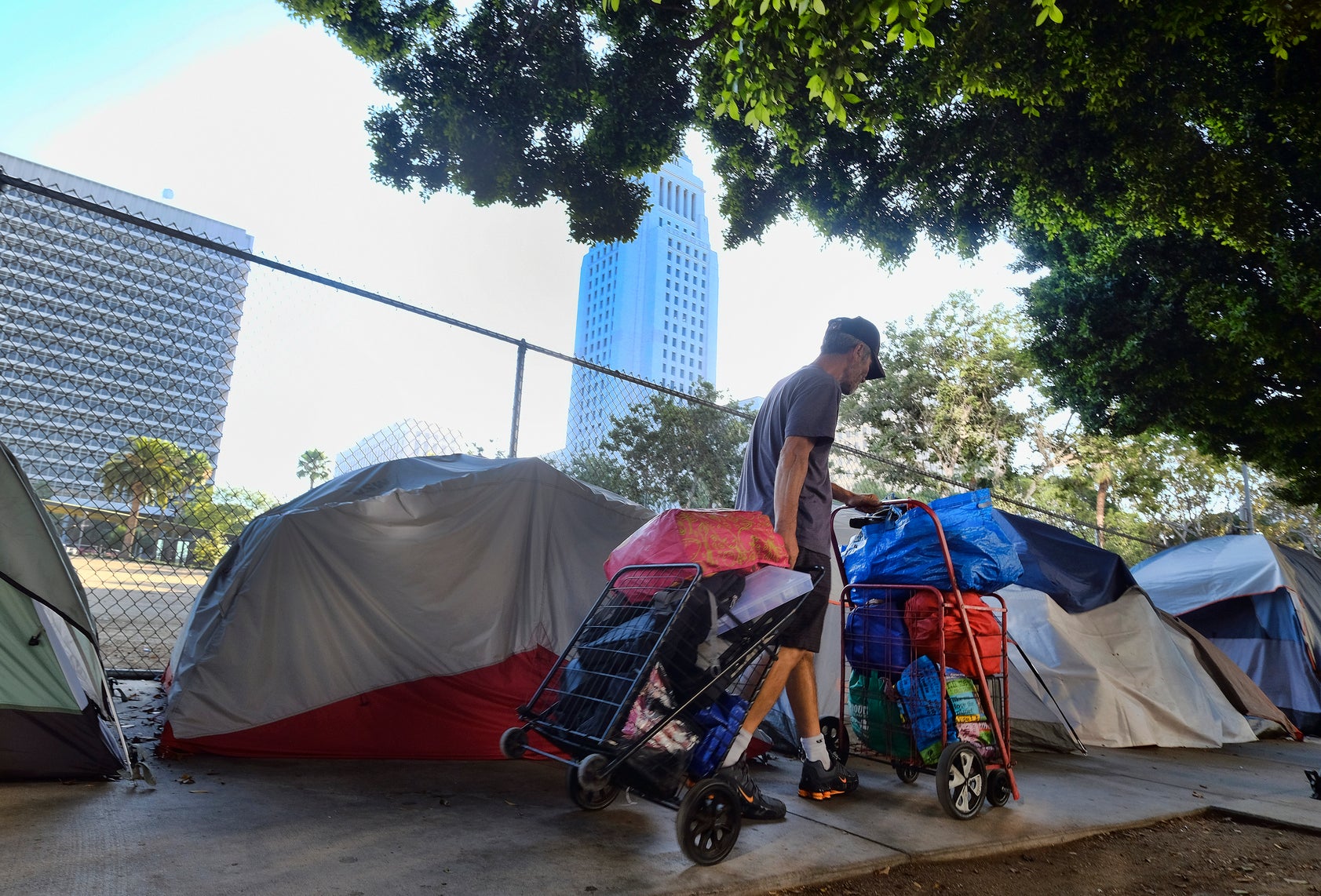Census takers head to homeless shelters, outdoor camps
Starting this week, census takers are grabbing reflective vests, face masks and flashlights and heading out at night to count homeless people for the 2020 census

Starting this week, census takers are grabbing reflective vests, face masks, bug spray and flashlights and heading out at night in groups of four to track down one of the hardest populations to count in the 2020 census — the homeless.
Over three days and nights this week, census takers will fan out to shelters, soup kitchens, mobile food van stops and other places across the U.S. where people experiencing homelessness often gather. They will follow that with overnight visits to encampments, under bridges, transit stations and other places where people live outside.
Delayed for six months by the global pandemic, it’s one of the hardest logistical operations the U.S. Census Bureau undertakes.
Some 49,000 locations have been identified across the U.S., including more than 33,000 outdoor encampments, almost 10,000 shelters and 5,000 soup kitchens, Al Fontenot, the bureau's associate director, told an advisory committee last week.
“We are making every effort to make sure that no one is left out of the count," Fontenot said.
The relatively warm weather, as well as the fact that most homeless shelters are only operating at 25% to 50% capacity because of coronavirus precautions, has some homeless advocates worried that the Census Bureau won't get an accurate count of the homeless population.
The census takers need to drive down every street, count people living under overpasses, in doorways, behind bushes and in tents, said Mike Arnold, president and CEO, of the Midnight Mission, which provides beds, meals and drug rehab on Los Angeles' Skid Row.
“When it’s warm outside, people are dispersed. There tends to be less density around homeless shelters and where people get services," Arnold said. “The best time to count is when it’s cold and when it’s dark, the way the county’s count is done. Fewer people are moving around and people are bedded down.”
Trying to count people living outdoors will be the toughest part of the homeless enumeration, said Beth Shinn, a professor at Vanderbilt University who researches homelessness.
“People have good reason to be hidden when they’re outdoors, for safety reasons," Shinn said. “People find places to be that aren’t necessarily visible to passersby.”
The homeless count is starting as the Census Bureau's effort to account for people living in transitory housing winds down at the end of the month. That count started at the beginning of September when 12,500 census takers started visiting more than 60,000 RV parks, campgrounds, marinas, and hotels and motels where people live who are on the move.
Meanwhile, census takers continue knocking on the doors of homes whose residents have not yet responded to the 2020 census, which helps determine $1.5 trillion in federal spending annually and how many congressional seats each state gets.
Field operations for the 2020 census are set to end Sept. 30, provided courts don't grant requests for a month extension made by civil rights groups, cities and counties.
With both the count of the homeless and those living in transitory housing, people will be counted where the census takers find them, and not where they were on April 1, which is the date used as a reference for counting most people in the U.S. Part of the reason for that has to do with concerns over “recall bias," or a person's ability to remember where they were six months ago.
For the homeless count, if someone is sleeping, a census taker will just do a head count instead of getting additional information about the person's race, sex, Hispanic origin and age.
“Always remember to treat everyone with dignity and respect, no matter what,” said a tip sheet given to census takers doing the homeless count.
Nowhere in the U.S. is the homeless crisis more visible than in downtown Los Angeles, where hundreds of people live in makeshift shanties that line entire blocks in the notorious neighborhood known as Skid Row. Tents regularly pop up on the pavement outside City Hall, and encampments are increasingly found in suburban areas under freeway overpasses. A count last January by the Los Angeles Homeless Services Authority reported that there were more than 66,400 homeless people living in Los Angeles County, up more than 12% from the previous year.
The wildfires in California, and around major cities like Los Angeles, add another twist to the state's homeless problem, as thousands of people have been temporarily displaced. Census takers have headed to Red Cross shelters to count people who did not fill out their forms earlier.
“The question for me ... is if they are counted at all,” said U.S. Rep. Jimmy Gomez, a Democrat from Los Angeles. “That is a big concern with wildfires raging across California."
___
Schneider reported from Orlando, Florida.
___
Follow Mike Schneider at https://twitter.com/MikeSchneiderAP and Christopher Weber at https://twitter.com/WeberCM.
Bookmark popover
Removed from bookmarks